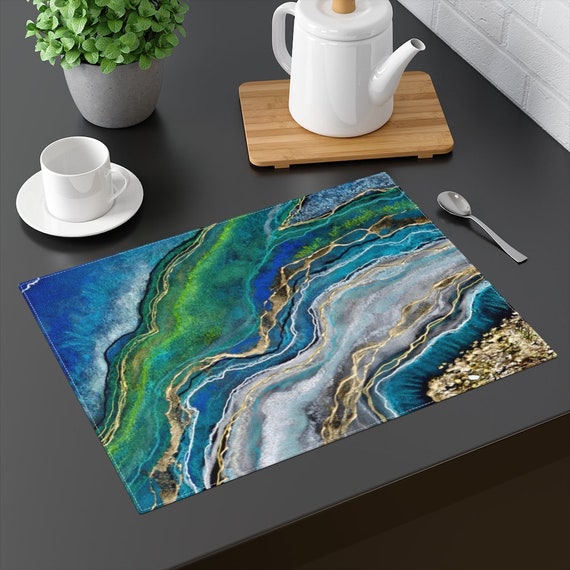Examine This Report about Top News Sites
Examine This Report about Top News Sites
Blog Article
The Basic Principles Of Unique Art
Table of ContentsUnique Art Things To Know Before You Get ThisLittle Known Facts About Unique Art.The Facts About Unique Art Uncovered5 Simple Techniques For Unique Art
While one may debate which art type holds priority, the truth remains that each of these seven forms supplies an one-of-a-kind home window into human history, society, and advancement. They are the tapestries that chronicle our journey, reminding us of our past while inspiring visions for the future.Excellent artwork informs a story, makes individuals look two times, and creates a special experience that can not be matched. Art and pictures connect every one of that through shade, shape and various other layout elements. Find out how to make your distinct art work attract attention from the group.
To bring even extra dramatization, he expanded the paint. The curves, along with a spherical sconce, soften the edges. Frames classic posters and maps of precious areas set the scene.
8 TRIA GIOVANEqual parts grand and laidback, this entrance hall developed by Anthony Baratta is the best plan to follow if you're embellishing a formal entry that still really feels unfussy and comfy. Formed fabrics take facility stage (see the rugs and the couch), yet they additionally help bring the high ceilings down to a human scale when hung over wallpaper.
Top Guidelines Of Unique Art
18 Heidi Caillier DesignA gallery wall does not need to take up the entire area. Sometimes a little one can make a larger style declaration. In this living room, Hiedi Caillier opted for micro-mini structures and an arbitrary structure.
, the expression of ideas and emotions, with the production of specific aesthetic high qualities, in a two-dimensional visual language. The elements of this languageits forms, lines, colours, tones, and texturesare used in various ways to produce feelings of volume, area, activity, and light on a level surface. These components are combined right into meaningful patterns in order to stand for real or mythological phenomena, to interpret a narrative style, or to produce entirely abstract visual partnerships.
Later on the concept of the "fine artist" established in Asia and Renaissance Europe. Prominent painters were paid for the social standing of scholars and courtiers; they signed their job, chose its layout and often its subject and images, and established a more personalif not constantly amicablerelationship with their patrons. Throughout the 19th century painters in Western societies began to lose their social setting and safe and secure patronage.
Facts About Unique Art Uncovered
Others made an income through exploring exhibits of their work. The demand to appeal to a market had actually replaced the similar (if much less impersonal) demands of patronage, and its impact on the art itself was probably similar. Normally, artists in the 20th century could get to a target market only via industrial galleries and public galleries, although their job might have been occasionally reproduced in art regulars
For the background of paint in ancient Egypt, see Egyptian art and design. The development of painting in find more different areas is dealt with in a variety of posts: Western painting; African art; Main Asian arts; Chinese paint; Islamic arts; Japanese art; Oriental art; Indigenous American art; Nautical art and architecture; South Asian arts; Southeast Asian arts. It is the sense of certainty in this formal organization that provides a wonderful painting its self-sufficiency and existence. The colours and positioning of the primary images in a style may be sometimes greatly determined by representational and symbolic factors to consider. Yet it is the formal interplay of colours and shapes that alone can interacting a specific state of mind, producing optical feelings of space, quantity, activity, and light and developing pressures of both harmony and tension, also when a paint's narrative significance is obscure.
Don't replicate the design of other musicians if you're attempting to discover your style. Duplicating other individuals's art work can be great in educational objectives but it will not make you closer to finding your own special design. Your imaginative design needs to be, what you like and what motivates you.

How Unique Art can Save You Time, Stress, and Money.
You need to try lots of different options and discover everything before you can concentrate on one certain design or you'll be tired, or worse, you'll dislike your own style. I recommend you to try every solitary subject that you're interested in, check out as much as you can. Try various mediums that thrill you and new techniques you have actually never ever tried prior to.
With time you'll be able to arrange every one of them right into your favorite and the very least favorite categories. Attempt to focus your focus on the topics and tools that you like and before you see it visit the site coming you'll have your own individual and one-of-a-kind style, like no person else have! So in the long run you'll have a few favored topics to paint and maybe a couple of favored tools.

Report this page